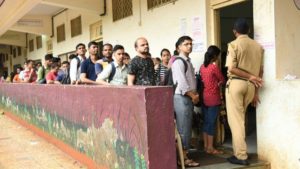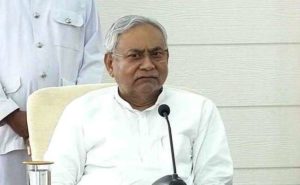
Simultaneous elections would save neither time nor money, DMK and JD(S) told the Law Commission on Sunday and explained why
The Government has not yet accepted or implemented a single recommendation made earlier by the Law Commission, alleged JD(S) on Sunday and yet, the Government, it added, appeared intent on holding simultaneous Lok Sabha and Assembly elections.
“We categorically told the Commission that the government must first take into consideration the recommendations given by the Law Commission in the past on electoral reforms. Not even a single recommendations has been accepted by the government so far,” Janata Dal-Secular (JD-S) spokesman Danish Ali said after the meeting at the Law Commission.
“In the series of poll reforms, first and foremost, there must be a ceiling on expenditure by political parties. But no one’s talking about it. When we put it today before the Law Commission, they said the government had not given any reference to it and it was out of their purview. It clearly shows that the government is not sincere about electoral reforms,” he told the media.
Claiming that simultaneous elections would “kill” regional parties, the JD(S) spokesman rubbished the argument that the Model Code of Conduct hampers development work. It was, he said, a “hollow excuse” as MCC comes into force for only 45 days while a government has a total of around 1,800 days in five years to do development work.
DMK also opposed the idea on Sunday and said it was unwarranted and practically not possible
“The present proposal of the Law Commission seems to be a complete misadventure that will decimate the federal structure. I respectfully submit my party’s whole hearted opposition to the proposal,” DMK Working President M.K. Stalin informed the Law Commission in writing.
Senior DMK leader Tiruchi Siva, who also attended the meeting, slammed the government, saying it was trying to divert people’s focus from issues of their concern.
“Country does not need simultaneous polls. We have got so many crucial issues which the government has to address. They are trying to divert the focus of the people from real issues of concern. It is unwarranted and practically not possible,” he said.
“Procurement of EVMs and VVPATs alone for conducting simultaneous elections would entail a recurrent cost of about ₹10,000 crore every 15 years, according to the Election Commission’s own estimates,” he said .
The entire expenditure borne by the central government for conducting general elections in 2014 was ₹3,870 crore or roughly ₹45 per elector.
The DMK leader also said that comparing Sweden (population of 1 crore), Belgium (1.1 crore) and South Africa (5.5 crore) – countries which hold simultaneous elections – is “logically fallacious and completely misleading” considering the population of India (132 crore).
TDP also opposed the idea. Party MP K Ravindra Kumar said, “We submitted a representation to the Law Commission stating that under the guise of simultaneous elections, the Central government is making hectic efforts to curtail the liberty of regional parties and to curtail the powers of the governments where regional parties are ruling,” he said.
He noted that the country, as per Article 1 of the Constitution of India, is a union of states and the Central government is not supposed to curtail the rights of the states under the guise of simultaneous elections.
Aam Aadmi Party’s Ashish Khetan also put up a spirited opposition to the idea. Simultaneous elections , he said, would usher in a sham democracy
“What will be left will be a pretense of democracy. The current dispensation will curtail the democratic rights of the people of this country. It will snatch away people’s right to vote in or vote out a government. There will be a domination of muscle and money power,” Khetan said.
Slamming the Bharatiya Janta Party (BJP) for its absence from the Law Commission’s meeting, he said it was “bizarre” that the party which floated the idea is itself missing from the discussion.
The AAP leader also emphasised how simultaneous elections would turn a “thriving, open and transparent democracy” of India into a “Stalinist democracy” where people will get the right to vote once in five years and not get the chance of self-correction if the chosen government fails to impress.
The JD(U) and the Bodoland Peoples Front (BPF) joined the Shiromani Akali Dal to support the idea of simultaneous polls to the Lok Sabha and the state assemblies. BPF however came up with the rider that local body polls should also be held at the same time to “save time, resources and revenue” for the nation.
Apart from BPF, the Telangana Rashtra Samithi also announced their support for the “one nation, one election” initiative.
Source: NH Web Desk






































